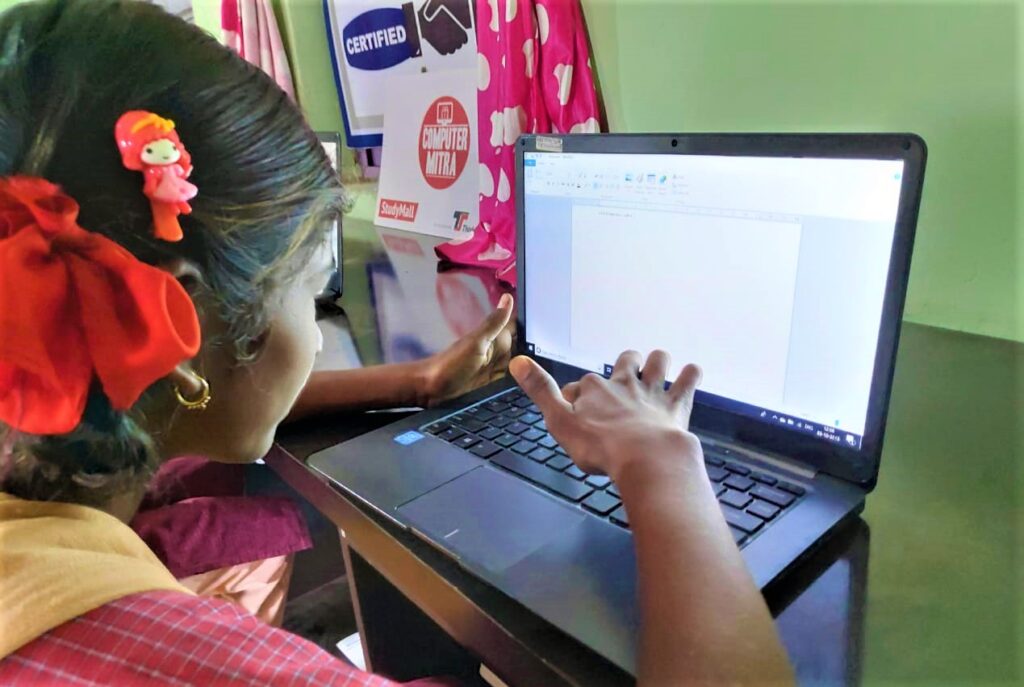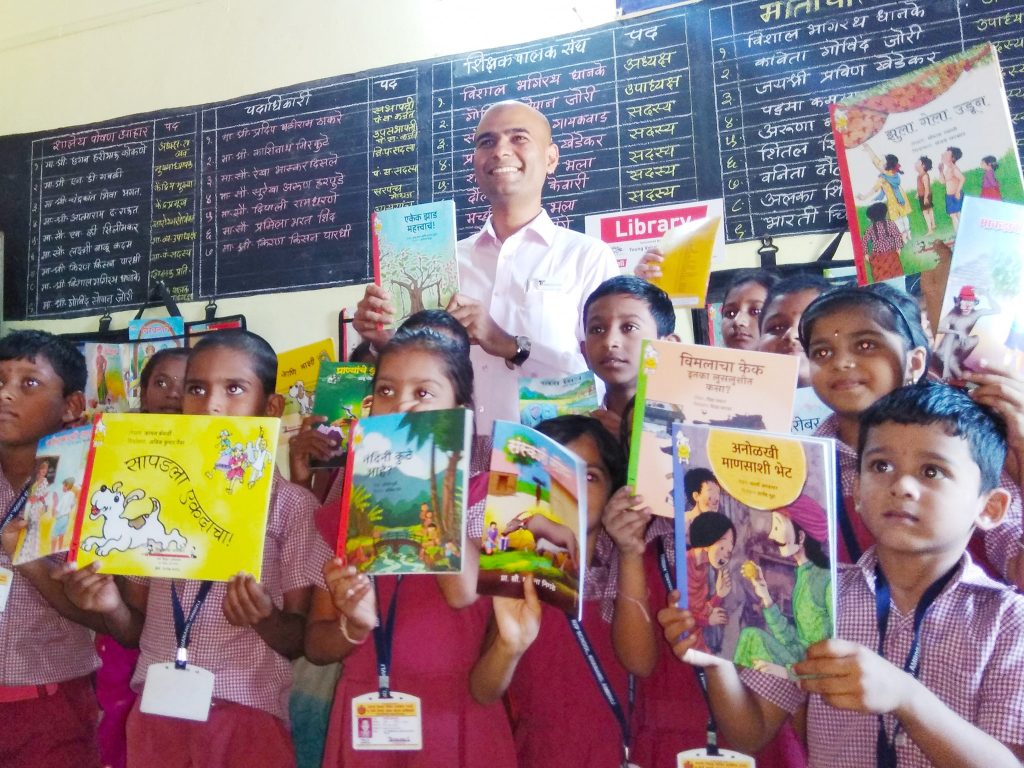“School Chale Hum!!” Just a phrase is enough to take us back to the early 2000s when its melodious tune made us enjoy a delightful sense of euphoria. That marked the beginning of “Sarva Shiksha Abhiyan”, a nationwide program launched by The Government of India to ensure universalization of primary education. It was pioneered by late Shri Atal Bihari Vajpayee, which went on to become the 86th Amendment to the Constitution of India. It made Free and Compulsory education a fundamental right for each and every child in the age group of 6 to 14.
As an outcome, the total enrolment in elementary schools rose from 18.79 crore children in 2009-10 to 19.67 crore in children in 2015-16. The number of Out-of-School children reduced from 1.34 crore in 2005 to 60.64 lakh in 2015. A lot of other data points and statistics depicts the glorifying success of the program. But, there is another side of the coin which tells a completely different story altogether.

Even though the Government of India has undertaken several steps for uplifting the education system of the country, the biggest challenge in the current scenario is to sustain and maintain the already available system. The facilities and provisions in the government run schools are highly criticized in all the levels of schooling, which affect the quality of learning negatively. Annual Status of Education Report(ASER) is India’s largest NGO-run annual survey which is being conducted every year, since 2005. The statistics mentioned in those reports claim that, as of 2018, 29% students dropout before completing 5 years of primary schooling and 43% before finishing upper primary.
In India, by the end of Standard II, children are expected to be able to read a simple text fluently and solve basic mathematical operations like addition and subtraction. The ASER reports contains information obtained after assessment on students from different standards. The results claimed that around 78% students in Standard III and 50% students in Standard V cannot read a Standard II text. When it comes to mathematics, around 70% students from Standard V cannot solve a 2-digit subtraction. There are many more fields and subjects where students are struggling to have a foundational level of knowledge and understanding. This clearly indicates, that majority of children in Government run schools need immediate help in acquiring elementary level skills in literacy and numeracy. And here enters, Thinksharp foundation.
Established in 2011, Thinksharp Foundation is a non-profit organization registered under the Mumbai Public Trust Act 1950. With a vision to “To bridge the Rural-Urban education divide”, the foundation believes that every child has a right to get quality education and a better future. Our methods include providing better educational infrastructure through digital tools, libraries, financial support, games and other fun activities for the children. We are tirelessly working with the village community, teachers, government and other stakeholders for creating a progressive and positive learning environment for the young minds of the nation.
“StudyMall”, inspired from shopping mall, is the flagship program offered by the foundation. It’s an approach to modernize the educational infrastructure with the help of technology and creativity. Through these years, we have initiated several projects covering Digital Learning Tools, Computer Education, Solar Energy, Library and colorful classrooms etc. The primary objective is to increase children’s interest in education and improving their learning outcomes. A better engagement of students and teachers is a crucial requirement to achieve that.
“Digital Class”, the most prominent project initiated under the StudyMall program, aims to provide education through multimedia/digital learning in the rural Government run schools. Gone are the days, when a piece of chalk and a board on the wall was enough to sail through the entire schooling life. Students need more visually appealing animations and pictures to enhance their imagination and interest in education. Most of the private run schools have already realized it’s importance and adapted the idea of digital learning. Our project facilitates the provisioning of the gadgets and systems to set the entire infrastructure. All in one projector equipped with Windows OS, Wifi, Bluetooth, HDMI, Speakers etc being the basic configurations.
“Modular Library” got initiated with a belief that a wide variety of books will help to foster positive reading attitudes among children. The name “Modular” suggests that these libraries are portable and can be easily added with books. Each set contains 30 to 35 richly illustrated books for children which can be hung on the wall and be removed as per the requirements. Instead of categorizing by age, we use reading levels 1 – 4, ranging from Emergent to Fluent which is accessible to any student as per his/her abilities. This unique format invites children to freely interact with books that are attractively displayed on the wall instead of being locked up in cupboards.
Two other projects include “Computer Mitra” and “Solar Shala”.
As the name suggests, “Computer Mitra” aims to teach computer skills to rural children from Government Schools. Learning computers has always been interesting among children. But lack of appropriate funding leads to no special trainers and computers in such schools. Students from Standard 6th and above are eligible to enroll under this project. Our trainers conduct a 3 – 4 months long course of basic operations on computers like working with MS Office, Emails, Typing, Operating Systems etc. An assessment is kept in the end followed by certifications on clearing the same.
“Solar Shala” is the most recent initiative aimed at solving the continuous power cut issues in the rural areas. A constant and reliable source of electricity is the most crucial requirement for a digital learning environment. But unfortunately, schools always face issues with power cut-offs due to non-payment of monthly charges, technical problems especially in rainy seasons and during load shedding sessions. In order to overcome these issues, we initiated the Solar Shala project to set up solar power systems in rural schools which can provide uninterrupted electricity.
The impact of these initiatives has been significant. As of now, we have covered 51 schools in 49 villages in Maharashtra. The number of benefited children stands more than 9000.

As quoted by Mr. Santosh Phad, the founder of the organization,
“We recently set up project StudyMall Zilla Parished School Eknathwadi and Devpada in Karjat taluka, district Raigad, Maharashtra. Both villages are completely disconnected from development. Maximum students studying in schools are from Tribal communities. They walk 2 to 3 KM to attend the school. Thinksharp Foundation took initiative and worked closely with villagers and teachers to transform the schools from both villages. With the support from Young Volunteers Organisation and Solar Village USA, Thinksharp Foundation set up modern facilities in schools. These facilities include Digital Learning, Library, Solar Power and very soon Thinksharp starting computer education programs in both the schools.”
Emily Dickinson, one of America’s greatest poets, said “One step at a time is all it takes to get there.”
A change that we once aspired, is a mammoth of a task which will take probably a couple of decades more to achieve completely. But that is not a reason which can stop us. The impact in the lives of children by our initiatives in the recent years suggests a promising future ahead and this is enough to motivate us in keep going. And that’s exactly what we are planning to do.
Written By
Himansu Sekhar Bandha (Volunteer, Thinksharp Foundation)
himansu011@yahoo.com
(379)
